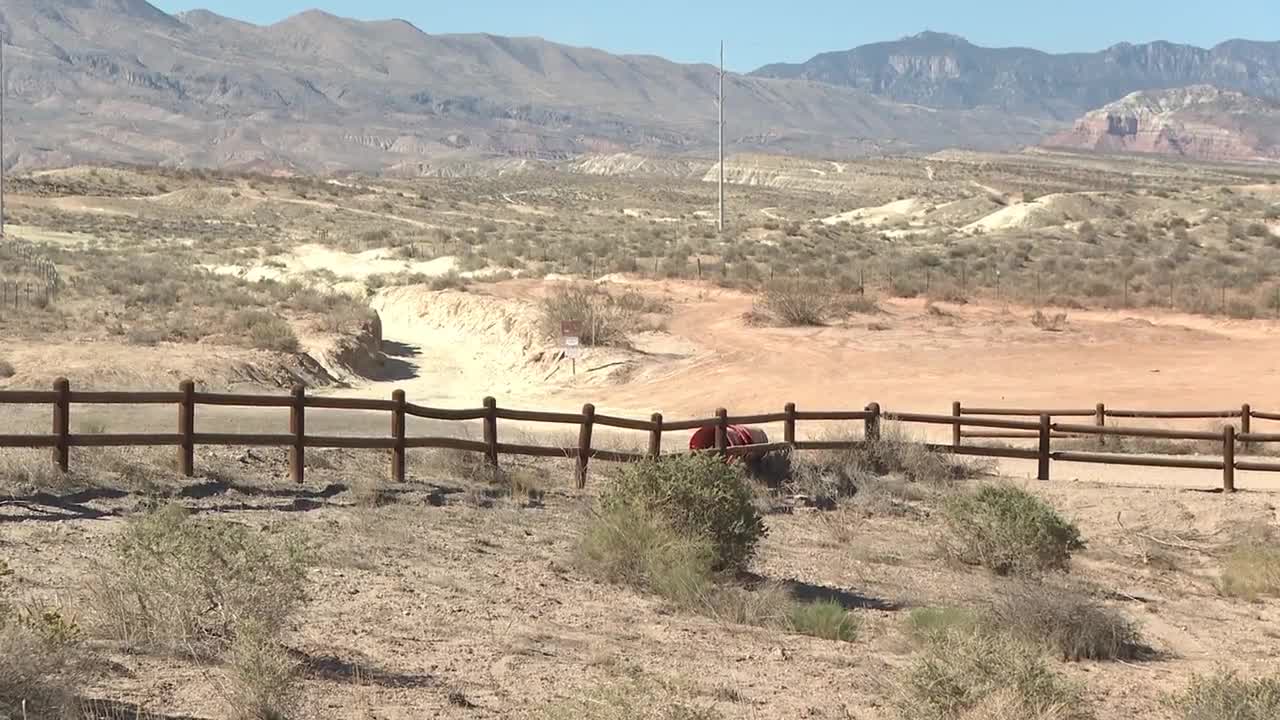ST. GEORGE, Utah — After rejecting the idea of a highway going through the Red Cliffs National Conservation Area under a previous president, the Bureau of Land Management is reconsidering under the Trump Administration, and this weekend is the last chance for the public to have a say before the agency makes a decision.
The Northern Corridor debate has divided southern Utah communities for nearly two decades, with the proposed four-lane highway connecting Washington City more directly with northern St. George.
The highway would cut through protected desert tortoise habitat, though officials say they would include tunnels under the highway.
St. George resident Luna Hutter lives near the Moe's Valley area and has been distributing flyers to inform neighbors about the final public comment period.
"We went and we're just trying to inform the public this was for the last survey to notify the public, and we posted it on the trail," Hutter said. "We're just trying to get as much attention as we could out there about it. We had no idea as local residents what was going on."
Utah may be forced to cut water rights if no Colorado River deal is reached:
The highway was first proposed in 2006. The Red Cliffs National Conservation Area was established three years later in the same area. The first Trump administration approved the project in its final month, but the Biden administration reversed that decision after a lawsuit by Conserve Southwest Utah.
Stacey Wittek is Public Lands Program Manager for Conserve Southwest Utah and said her organization supports economic growth but opposes this particular solution.
"We are not anti-growth. We absolutely understand that abundance and economic security is important to us all," Wittek said. "We just think that the Northern Corridor Highway is a step in the wrong direction."
Local climbing enthusiast Tyler Webb supports the current corridor plan, though not because he favors the highway. He believes the road will eventually be built regardless of opposition.
"You know, every time there's a group that comes in and sues and then the road, you know, they just keep... They're just going to build it no matter what I feel like at this point," said Webb. "Anything we can do that saves this area, that saves the area that I've grown up mountain biking and rock climbing is what I want."
Webb referenced Moe's Valley, designated as Zone 6 by the Utah Trust Lands Administration. Located about seven miles southwest of the proposed highway route, the area contains five plant species found nowhere else on Earth, including the Bear Claw Poppy.
"They are endemic here, like only place on the planet. So that's what bothers me. It's like somebody needs to advocate for these endangered species," Hutter said.
Public officials have negotiated a deal with Trust Lands that would impose a 20-year development moratorium on Moe's Valley if the Northern Corridor is built. Without the highway, Trust Lands could sell the Moe's Valley property to developers at any time.
Wittek disputes this framing as an either-or choice between the two areas.
"I do think that the county leaves it up to a win-lose situation with Zone 6 or the Northern Corridor Highway. We don't believe that," Wittek said. "We think it's an imposed binary choice, and we believe that it is possible that to save and protect both. I have to say that the only thing that has ever made things happen is the public's will to do so."
The BLM is accepting public comments through November 3 at this link.




